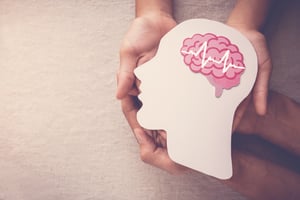 Strokes are severe medical problems that call for prompt care. They can seriously harm the brain and other organs because they can happen quickly and without warning. When it comes to strokes, time is of the essence because a quick response can greatly increase the likelihood of survival and reduce long-term disability. The critical actions to take if you suspect someone, including yourself, is experiencing a stroke are outlined below. Remember, being alert to the warning signals and taking prompt action can save lives.
Strokes are severe medical problems that call for prompt care. They can seriously harm the brain and other organs because they can happen quickly and without warning. When it comes to strokes, time is of the essence because a quick response can greatly increase the likelihood of survival and reduce long-term disability. The critical actions to take if you suspect someone, including yourself, is experiencing a stroke are outlined below. Remember, being alert to the warning signals and taking prompt action can save lives.
What are the Warning Signs of a Stroke?
Early detection of a stroke requires knowledge of its symptoms. Let’s take a closer look at the typical symptoms, which can be easily remembered by the abbreviation F.A.S.T.
Face drooping: One side of the face may droop or feel numb. Ask the person to smile and observe if their smile appears uneven.
Arm weakness: One arm may become weak or numb. Ask the person to raise both arms, and see if one arm drifts downward.
Speech difficulty: Speech may be slurred or difficult to understand. Ask the person to repeat a simple sentence and listen for any abnormalities.
Time to call emergency services: If you notice any of these symptoms, it is crucial to act quickly. Time is of the essence, and immediate medical attention is vital.
What to do in the Event of a Stroke
As soon as you suspect someone is having a stroke, notify emergency services. Call emergency services, describe the issue in detail, and give your location and any other information needed. Do not put off obtaining professional assistance because time is of the essence.
Strokes can also be a scary experience for both the person experiencing them and those nearby. Remain composed and reassuring of the patient while awaiting the arrival of medical personnel. Keep them as calm as you can while assisting them to sit or lie down in a comfortable posture. Tell them they are not alone and that help is on the way.
During a stroke you must refrain from giving the person anything to eat or drink. Choking could result from a stroke's effects on swallowing. Waiting for medical experts to evaluate the problem and administer the proper care is the best course of action.
Follow the patient's symptoms closely as you wait for medical help, making note of any changes or developments. Pay close attention to when symptoms initially started to occur because this information will be essential for medical specialists to decide the best course of treatment.
Throughout a stroke episode, emotional support is essential. Remain by the person's side and soothe them with your words. Assure them that aid is on the way and that they are in excellent hands. If you are not a qualified healthcare expert, avoid making promises or giving medical advice.
Inform yourself about strokes and educate people around you. Learn about the risk factors, the necessity of a healthy lifestyle, and the preventative strategies. Know the fastest way to the nearest emergency hospital or stroke center and become familiar with the nearby medical facilities.
Recognizing the signs of a stroke and taking immediate action is crucial for ensuring the best possible outcome. Stay informed, share your knowledge with others, and remember that acting fast can save lives when it comes to strokes. The expert staff of doctors and nurses at Lane Regional Medical Center’s Emergency Room are here to help.



.png?width=110&height=110&name=lane%20badge%20(1).png)
